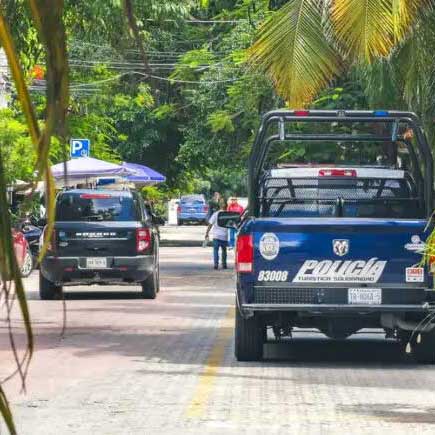Gloria Ambriz, 50, and Rafael Cardona, 53, a couple from California, fell victim to a fatal shooting during their vacation in Michoacán, Mexico on December 11, 2024. Michoacán is a state facing a surge in crime-related violence. The shooting incident took place in Santiago Tangamandapio, as reported by the Michoacán State Attorney General’s Office.
The couple was attacked in their black Ford pickup truck by unidentified assailants. Investigations are underway to uncover the motive behind the attack and identify the criminals involved.
Santiago Tangamandapio is among several areas in Michoacán where disputes over territory and drug trafficking routes frequently lead to violent encounters between criminal groups.
The U.S. Department of State has repeatedly issued travel advisories due to escalating cartel violence in Michoacán, advising Americans against visiting the region. The deaths of Gloria and Rafael underscore the potential risks tourists may face in such high-risk areas. The current travel advisory for Michoacán, released in October 2024, specifically warns against all travel to the state, citing concerns of crime and kidnapping.
In Santiago Tangamandapio, residents report frequent violent incidents, with one witness stating, “It’s not safe to drive here, even during the day.” The ongoing violence has negatively impacted local businesses and the tourism industry, which once contributed significantly to the region’s economy.
Rafael Cardona and Gloria Ambriz, who were longstanding California residents, also maintained connections to the municipality of Angamacutiro in Mexico, where they owned a house. Cardona was brother-in-law to the local mayor, Hermes Pacheco. Their frequent visits to the region and the shocking nature of the attack have deeply affected the local community.
The violence in Michoacán reflects a broader national trend that has escalated in recent months. The year 2024 witnessed a surge in political assassinations, including 60 politicians during Mexico’s general elections. High-profile killings, such as the execution of Chilpancingo Mayor Alejandro Arcos in Guerrero state, highlight the persistent threats to civilians and public officials.
Despite the challenges, President Claudia Sheinbaum has pledged to address the cartel crisis with social programs aimed at addressing the root causes of crime. Critics, however, contend that her approach of “hugs, not bullets” has not effectively curbed the violence. Since the start of the militarized war on drugs in 2006, cartel-related violence has claimed the lives of over 450,000 people, with no signs of abating.
The murders of Ambriz and Cardona have reignited concerns about the safety of American tourists in Mexico. The State Department reported that over 150 U.S. citizens lost their lives in Mexico in 2024, many in regions impacted by cartel activity. The federal government advises against non-essential travel to high-risk states, including Michoacán, Jalisco, and Guerrero.
Investigations into the couple’s deaths are ongoing, with both local and federal authorities collaborating in the pursuit of justice. However, considering Mexico’s record of impunity—with over 90% of crimes going unpunished—there are doubts if those responsible will ever be held accountable.

